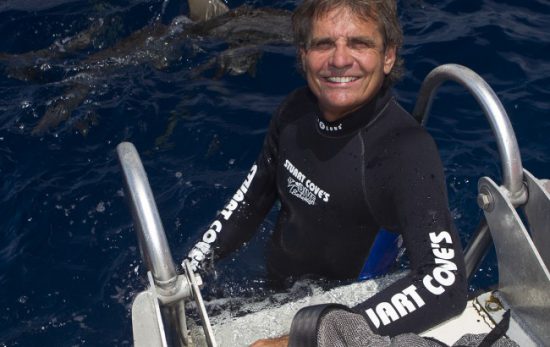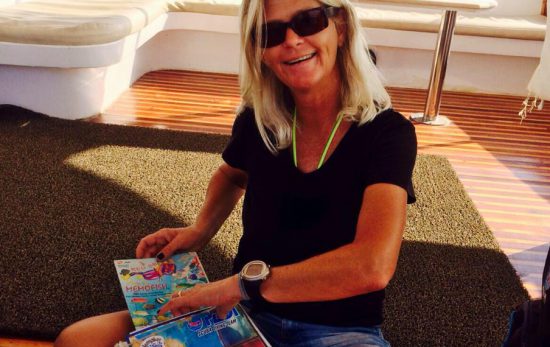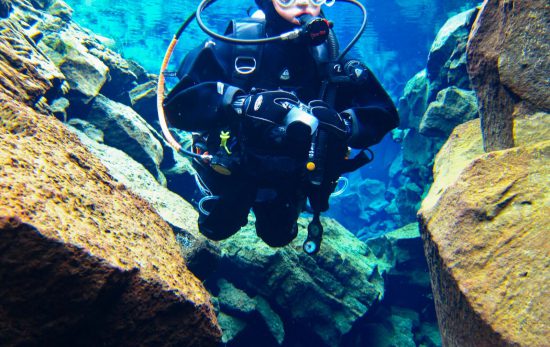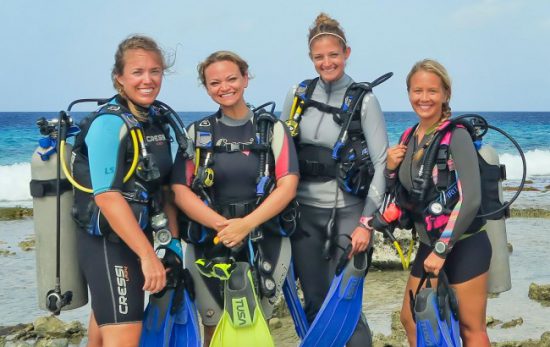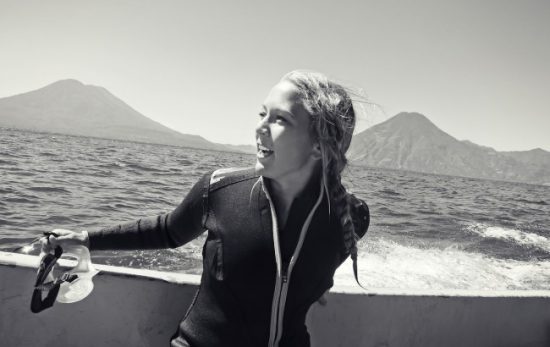When I touched down on Gili Trawangan in 2013 with the intention to complete my PADI Divemaster, I had a pretty good feeling the next six weeks were going to rock my underwater world. I was right.
As an already experienced diver, I knew exactly what I wanted out of my training. I wanted to become a more confident diver, pad my resume as an underwater videographer, learn more about how I could protect the delicate ocean ecosystem, and have fun! I found the course both rewarding and challenging, confronting several of my scuba weaknesses — poor navigation skills, confusion with decompression theory, and sloppy safety procedures and practices — and acknowledge my strengths, like good buoyancy, knowledge of the environment and basic photography skills, and interacting with other staff and customers. I graduated with a deep sense of pride, a newfound confidence in myself as a diver, and an amazing new dive family – plus stronger shoulder muscles than ever, thanks to six weeks of slinging tanks.
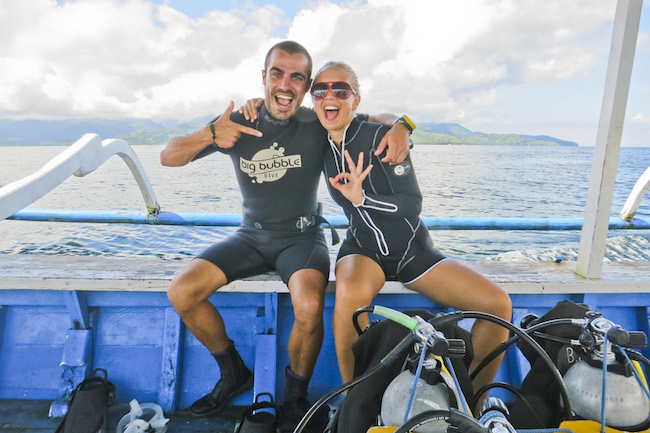
Considering taking the plunge yourself? These are some of the most common questions that I’m asked about the Divemaster course, years after recounting the experience in detail on my travel blog.
How long will it take?
The length of the course varies depending on the dive center, the experience you have going in, and the time you have available. There is an option to participate in theory eLearning ahead of time if you are on a super short time frame.
Personally, my biggest regret of my Divemaster experience was doing it too quickly! Six weeks flew by and I wished I’d set aside two or three months to really immerse myself in the experience.
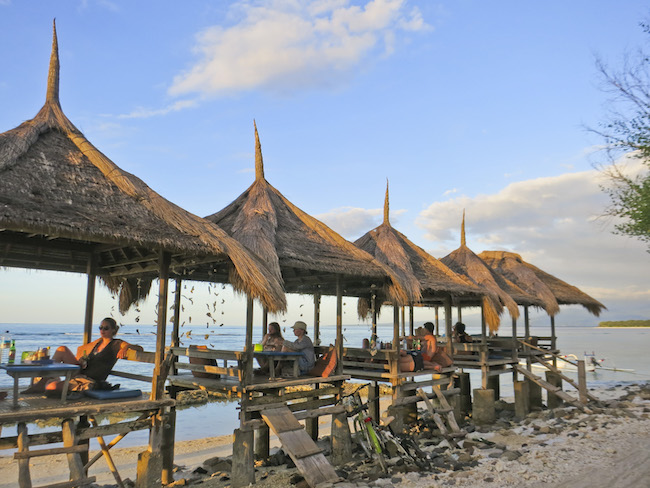
Should I do the course at home or abroad?
This is a personal decision that depends heavily on your priorities. Do you have strong roots in a community that you’re interested in working in and diving with for the foreseeable future, or do certain commitments make long-term travel inaccessible? Perhaps forging a deep connection with a local dive shop is the right choice for you!
Are you craving a change in both attitude and latitude? What better time to explore the tropical destination of your dreams! Don’t forget to check visa requirements if you are exploring options abroad, as the Divemaster course often lasts longer than the typical entry stamp in many countries, so you may have to apply for a visa ahead of time.
How do I choose a PADI dive center?
This is far and away the most frequent question I get about the Divemaster training experience – landing in my inbox about once a week! Unfortunately, I’m never able to return a very definitive answer, because the choice is a deeply personal one.
What I can recommend is a method. Once you’ve chosen a general destination (whether it’s close by or far flung!), research all dive shops in the area. Then, make a list of questions to ask them – ideally in person, but over the phone can do in a pinch. Don’t leave this to email. You want to have a real conversation with the people you’ll be spending such an important time with!
Some ideas for questions to ask include how many Divemaster trainings there typically are at once, how structured the classroom learning is, if you’ll be assigned one singular mentor or work with several, and how much flexibility you’ll have with your free time.
When I touched down on Gili Trawangan, I dedicated two full days to going to each of the sixteen dive centers on the island at the time. I knew my priorities were finding a sustainability-focused, medium-sized school where I’d have some leeway in my schedule to work around my blogging commitments, and where there was a diverse team of both international and local staff made up of men and women.
Once I had a list of six shops that fit my requirements, it was time for some soul searching. In the end, I based my decision on the very scientific and profound process of finding “good vibes” and feeling a connection with the people I was signing up to spend every day with for the next six weeks. It worked!
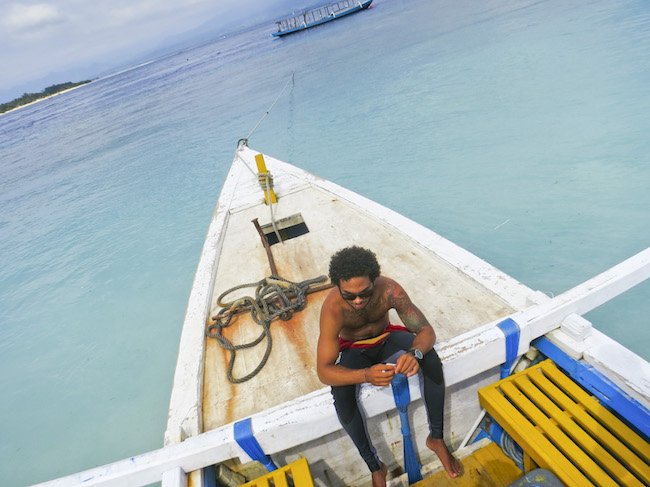
How do I find work afterward?
You can increase your odds of finding work in your newfound scuba career by putting together a professional looking resume (a rarity in the dive industry, believe it or not!), learning another language (perhaps the most valuable skill a prospective dive employee can have), and using resources like the PADI job board to connect with potential employers. Most dive centers prefer to hire directly from their own pool of training program graduates, which makes selecting a dive center that is a good fit for you even more crucial. The best way to increase your odds of employment is to continue on to your Instructor Development Course.
What do I need to get started?
Requirements include being 18 years of age (although divers ages 15 to 17 can enroll in the Junior Divemaster program), having your Open Water, Advanced Open Water, and Rescue Diver certifications, having completed your Emergency First Responder course within the past 24 months, having a signed medical statement, and having at least forty logged dives. Your dive center can help you meet these requirements before you get started if you’re not quite there yet.
Some dive shops will also require you to have your own set of dive equipment, while others will simply offer you a discount for doing so. I received a 10% discount that amounted to $100 for having my own set of dive equipment for my course. Dive centers often run low on extra small BCDs and women’s wetsuits – if you require either, I strongly recommend bringing your own along with you.
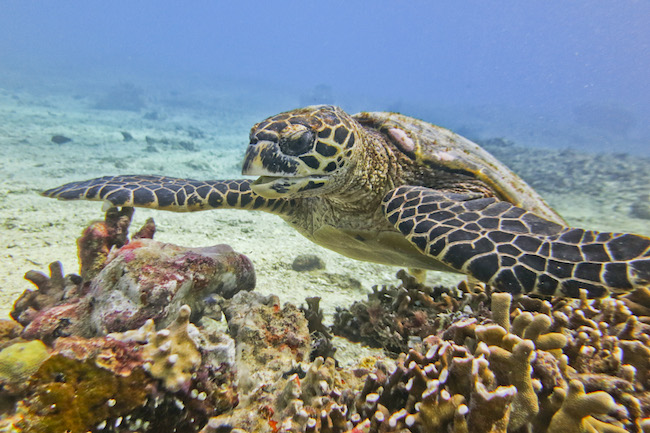
What if I can’t afford it?
Like any professional training program, the Divemaster course is a significant investment (it’s also a ton of fun!) When I was considering my Divemaster training, I applied for and won a Women Diver’s Hall of Fame continuing education grant. The grant saved me over $1000, but the value was more than monetary — I made connections with an impressive group of women in the diving industry who continue to mentor me today.
You can do the same! There are an impressive number of opportunities for men and women of all nationalities to apply for grants and scholarships that offset the cost of a dive program, and develop a strong support network. The following list is just a start!
Some dive shops may allow flexible long-term training that allows you to work part-time while completing the course. If this is your situation, have a heart to heart with the dive center you’re excited to work with and see what solution you can come up with together.
Is being a Divemaster right for you?
If you have an infectious love of diving that you want to share with others, YES! People complete the Divemaster course for countless reasons. Some want to find a way to work in the dive industry and support their travels and lifestyle. Some want to become more confident and assured recreational divers. Some want to add scuba diving to a resume for another adjacent career like marine biology or boating. Some want to just have fun! All are equally valid reasons to dive in.
Are you considering your Divemaster training? What lingering questions do you have that weren’t addressed here? Ask away in the comments!
